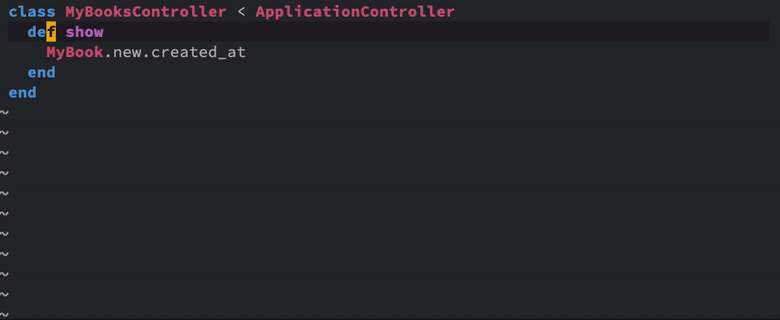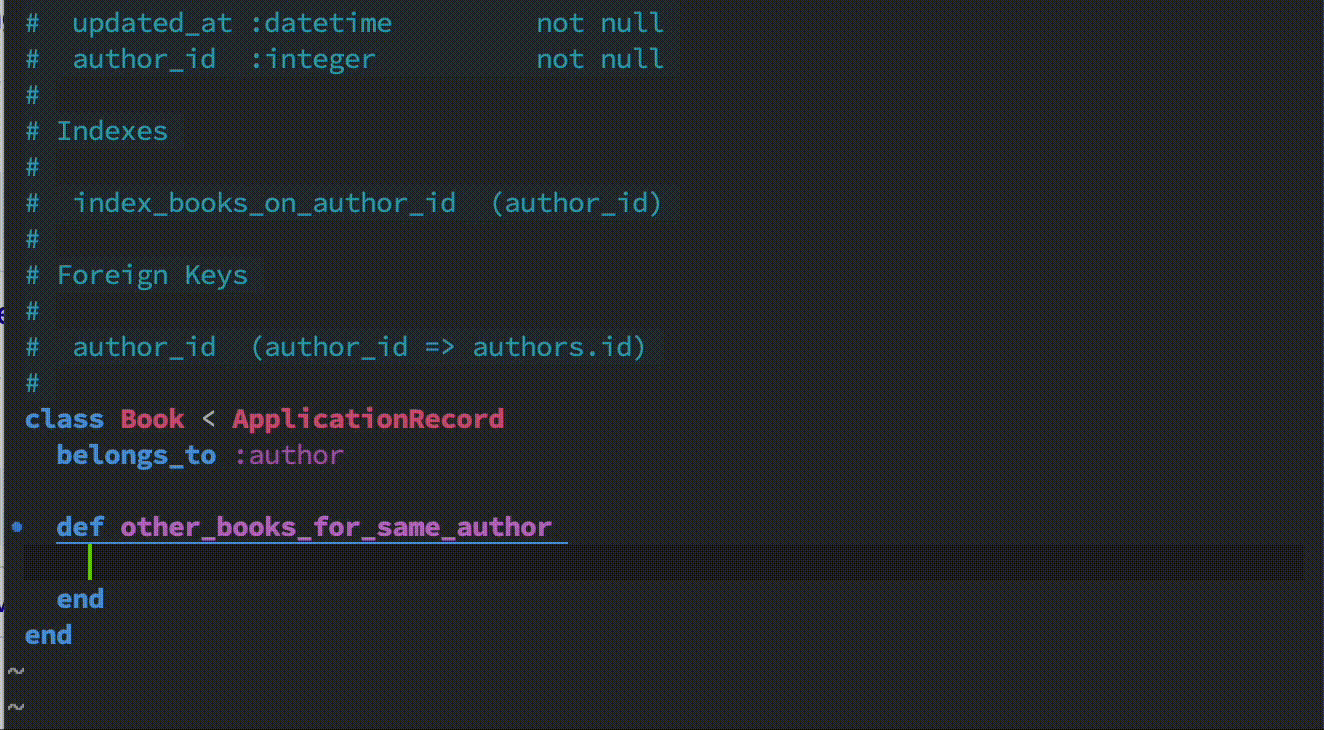There are significant rough edges to this gem still.
Given a typical Rails model like this:
# == Schema Information
#
# Table name: my_books
#
# id :integer not null, primary key
# author :string
# name :string
# created_at :datetime not null
# updated_at :datetime not null
#
class MyBook < ApplicationRecord
def my_method
"hello"
end
...
endThe various Ruby intellisense tools are ok at knowing that there is a MyBook constant, and some (including Solargraph) are even aware that objects like MyBook.new have a method .my_method. But what about those magical dynamic attributes that ActiveRecord creates when Rails starts up? You can see these listed at the top of the file under # == Schema Information, the comments helpfully added by the Annotate gem.
Since these attributes are only created at runtime, static analysis alone can't identify them. Your editor has no idea that these attributes exist, but they're amongst the most common things that you will work with in any Rails app.
That's where this plugin for Solargraph comes in: it parses the schema comments left by Annotate and uses those to give Solargraph some extra hints.
With this you get autocompletion on ActiveRecord attributes:
... and go to definition commands take you to the schema comment for that column:
... and peek commands show you documentation about the attribute:
Solargraph won't know about attributes that you add during a session. Restart your LSP workspace to get the new attributes.
For my setup with Emacs, that means running M-x lsp-workspace-restart, YMMV in other editors.
There is simplistic support for belongs_to and has_many macros:
This project is being used to write production code by the maintainer, but it is still WIP. Check out the issues tab and contribute if you are interested.
Association support is slightly less functional in Rails 7.
Typically gems like these are not installed via the Gemfile, because most projects have more than one contributor and other contributors might have different setups for their editors in mind. Instead you need to use gem install.
gem install solargraph-rails
If you do want to use bundler, add gem 'solargraph-rails'
(if you don't have a .solargraph.yml in your project root, you can run solargraph config to add one)
plugins:
- solargraph-rails
Add schema comments your model files using Annotate. At the moment Solargraph::Rails assumes your schema comments are at the top of the source file.
Fork the project, start hacking, put up a PR :).
When you make changes, you probably need to shut down solargraph and restart it (maybe that requires you to shut down your whole editor?). You can speed up the feedback loop by running
api_map = Solargraph::ApiMap.load(Rails.root.to_s)
in the console of the Rails project where solargraph-rails is installed. This may require restarting the rails console each time, and possibly killing Spring.
Once you have an instance of Solargraph::ApiMap, you can interrogate it with Solargraph code like:
pins = api_map.get_methods('MyBook')
More examples here: https://solargraph.org/guides/code-examples
Bug reports and pull requests are welcome on GitHub at https://github.com/iftheshoefritz/solargraph_rails.
The gem is available as open source under the terms of the MIT License.



